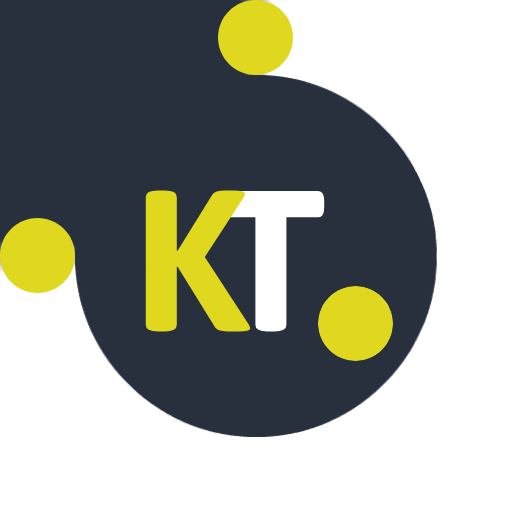
As developers and especially when self-employed and working as freelancers, we leave our clients to dictate everything right from the start.
This is usually a terrible practice and will always lead projects into the hole. Leaving your clients to dictate and lead everything within a project from the get-go is not only bad for the overall project process, but it will also make your life miserable, and you may start hating your job.
Note: You will work with some clients in the business for long enough, have the experience, and may even know more than you do, but in 9/10 cases, this will not be true.
Below, I will give you three expert advice tips on avoiding this, making your client comfortable, making them trust your judgment, and avoiding being bossed around.
You can even make them feel that they are in charge, but in reality, you are the one who is in control.
1. Don’t start the conversation with budget and timeframe questions
A lot of developers, especially those the don’t have the experience and portfolio to back up their expertise & knowledge and don’t feel confident, may start with questions like:
- What is your allocated budget and how much do you want to spend?
- What is your timeframe and how soon do you need this?
Talking about budget and timeframe in the first or second exchange gives all the power in the world to your client because they are the one who writes the check, and now they know they are the one who dictates the budget and timeframe.
Honestly, avoid asking about budget and timeframe within your first several conversations or emails. Try to leave these questions towards the end of your communication with new (or even existing) clients.

Even further, if you have a contact or quotation form on your site, don’t have fields with budget and timeframe. The initial questions should be related to getting to know your client and their business. Know the size, type of the company, and the people you will work with. This will give you a lot more information than just asking about the budget and timeframe for their project/task. Be creative.
You know that estimating a project is based on the timeframe, urgency, complexity, and scope. The client probably knows this as well. However, if you start with the budget and timeframe questions, they will almost always try to downplay the above and say stuff like
- This is very simple … it will take you no time.
- And even tell you things like this will take you only X hours.
This will almost always happen when you work/communicate with project managers directly. They are the ones that have the most tricks under their sleeves and try to manipulate you as much as they can.
Many clients will contact you and say I need this, this and this done, how many hours, and how soon you can do it.
To avoid answering these questions right from the start, you can ask additional questions about their project. Even clients that have everything put together for you … design, layout, color scheme, responsive layout screens, and ten pages PDF with all the instructions you always have the room and may ask additional questions to engage them and start or move the conversation in a different direction than budget and timeframe.
In my experience, the more information you have about a certain project, the more questions you may come up with and ask your client.
- This technique will distract clients to worry only about budget and timeframe. You will move their focus on the project specifications and requirements.
- You will actually engage the client and lead the conversation which will make them trust you more when you start talking about budget and timeframe, especially if you know what you talking about.
2. Don’t have fixed hourly rate, charge on project/client basis
Sooner or later, you will need to estimate and price a project. Fixed hourly rates can and will almost always hurt you and make you feel underpaid. You have a fixed hourly rate of $50/hr, and I can tell you straight away this is not what you will have at the end of the project. You will almost always work more hours than you have estimated, even if you add a 15-20% buffer for the extra stuff and complication. Your initial hourly rate will go down, sometimes by 30-40 or even 50%.
Clients and, again, project managers, for sure, will ask you what’s your hourly rate, right from the start or after you give them an estimate. And I promise you they will be persistent and don’t leave you before you let them know.

They won’t leave you if you try to avoid answering … but why you may ask?
There are several reasons why but the most important is that they want to take the lead out of your hands and dictate what’s going on. Their thinking is if I pay for this work, I should be 100% in control. That’s basically true, but you can be smart and leave them thinking this while you are actually in the lead.
To go around this, you should have a price range, let’s say $50-100/hr, and give them this rather than a $50/hr fixed rate. And don’t make your price range too narrow; $ 5 or $10 is not enough.
So how to actually handle estimates, you may ask?
Again best-case scenario would be to charge based on project/client basis and give them one final price and then list everything you should do for this price.
You will not charge Nike or Microsoft at the same price/rate as some random startup. So, please do your homework learn about the company as much as possible before giving them a final estimate. Ask questions.
That’s why the first rule of thumb (I have in this article) is to ask as many questions as you can. Not only to learn about the project requirements but also about the company structure, size, and history.
3. Don’t back down and be firm
Even if you do all of the above, there will be clients who will try to lower your estimate and price for their project. I have seen and heard anything you can imagine, and they will try hard and anything to make lower your estimate, even give you some personal reasons.
If you haven’t heard them yet, the two most popular that come to me are:
- This task should be easy and take X hours to complete for a pro like you.
- If this project goes well I will have much more work in the future for you.
You should value your work and expertise, and if you are in it for the long run and want to enjoy what you do, you should be firm and never back down. Don’t lower your estimate when clients start bargaining.
You may decrease the project urgency, complexity, or scope and complete fewer features for the lower price (or budget) but never back down from your original estimate.
If a client really values your work and expertise, they will understand that and hire you. And maybe later on, once they have the resources, pay to complete the rest of the work.
Moreover, you should know that you cannot satisfy and win 100% of your leads. So, I would prefer to win and work with only 10% of my leads, and that will really value my time and work, and I will enjoy and like my job. Compared to winning 50% of my leads and feeling underpaid and miserable at the end.
I hope this article was useful to you, and you can apply and implement the above tips in your future endeavors.
‘Til the next time.
